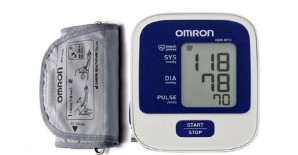
Health

Vaccination is a vital component of routine preventive health. But vaccines are not just for kids! It’s important to know that older adults, who are highly susceptible to diseases and associated complications, can also benefit greatly from them. Dr Falguni Parikh, consultant – internal medicine, Adult Immunisation Clinic, Kokilaben Dhirubhai Ambani Hospital, answers some frequently asked questions about adult immunisation
Why do we need vaccination for silvers?
Older adults and people with weakened immune systems (like those undergoing cancer treatment) are especially vulnerable to infectious diseases. Vaccines greatly reduce the risk of infection by working with the body’s natural defences to safely develop immunity to disease. The diseases that vaccines prevent can be dangerous, even deadly.
Which diseases can be prevented with vaccines in older adults?
These include influenza (flu); shingles (herpes zoster); pneumococcal disease (pneumonia); diphtheria; tetanus; and pertussis (whooping cough).
How do vaccines work?
Vaccines help develop immunity by imitating an infection. This type of infection, however, does not cause illness but causes the immune system to produce specific white blood cells and antibodies to fight the infection. It typically takes a few weeks for the body to produce these after vaccination. Therefore, it is possible that a person who was infected with a disease just before or just after vaccination could develop symptoms and get a disease, because the vaccine has not had enough time to provide protection.
Why is the flu vaccine recommended for silvers?
Over years, it has been recognised that people over 65 are at a higher risk of serious complications from influenza compared to young, healthy adults. It is estimated that 90 per cent of seasonal influenza-related deaths and between 50 and 60 per cent of seasonal influenza-related hospitalisations occur in people above the age of 65. People in this age group also have the highest hospitalisation rate. Preventing influenza and treating it promptly may reduce the risk of influenza-associated complications, including hospitalisation and death. Flu vaccination is the first and most important step in protecting against flu. Elderly people residing in old-age homes are especially vulnerable to influenza outbreaks that, in this setting, may cause widespread illness with a high death rate. Vaccinating all adults for influenza is a long-standing preventive health measure.
What are the benefits of the shingles vaccine?
Shingles is caused by the herpes zoster virus. The incidence of shingles increases with age. Skin eruptions and excruciating pain occur along the nerve that the virus attacks. Even after the attack, the pain of post-herpetic neuralgia can be severe and prolonged, leading to a significant reduction of quality of life. Routine immunisation of individuals aged 60 and older is recommended. Individuals who have already had an episode of shingles should still be vaccinated because repeat episodes can occur. The shingles vaccine is not recommended for people with suppressed immunity.
Why is pneumococcal vaccination recommended?
Age is the most important risk factor for pneumonia owing to the bacterial organism, Streptococcus pneumoniae. It remains the most common bacterial cause of community-acquired pneumonia and can cause invasive infections with significant morbidity and mortality in the elderly, especially those with associated risk factors like diabetes and lung, heart or kidney disease. There are two types of vaccines for S. pneumoniae: the pneumococcal polysaccharide vaccine (PPSV) and the pneumococcal conjugate vaccine (PCV).
How does the hepatitis vaccine help silvers?
Diabetes mellitus, renal failure and liver failure are increasingly prevalent in the elderly population, and individuals with these conditions have a greater risk of acquiring hepatitis infection or having a more fulminant course. As adults with diabetes mellitus below 60 years of age have twice the risk of acquiring the hepatitis B virus (HBV) compared to those without diabetes mellitus, vaccination is recommended for them. The evidence is not as strong for adults aged 60 and older, and the decision can be individualised. Individuals with chronic kidney disease should be vaccinated for HBV, ideally before the initiation of dialysis. Chronic liver disease is an indication for vaccination against HBV and Hepatitis A.
Is immunisation required before travel?
Older adults are increasingly travelling for work and pleasure. They need to meet their health providers to update their vaccination status. Recommendations for destination-specific vaccinations can be sought at vaccination clinics. Four to six weeks before travel, one must schedule an appointment with the healthcare provider to get the recommended vaccines for the countries they plan to visit. This gives the vaccines enough time to start working and time for any vaccines that might require more than one dose. Vaccinations recommended for mass gatherings like the Haj pilgrimage or Kumbh Mela are the typhoid, Hepatitis A, Hepatitis B, cholera, pneumococcal and influenza vaccines.
WHAT IS IMMUNISATION?
Immunisation refers to the process whereby the immune system is made to mount a response against various microbes by inoculating certain agents. The process of inoculation is vaccination. A vaccine is a preparation of a killed pathogen or weakened bacterium or virus that, upon administration, stimulates antibody production or cellular immunity against the pathogen without causing severe infection.
Photograph by iStock Featured in Harmony — Celebrate Age Magazine November 2016
you may also like to read
-
Hot tea!
If you enjoy sipping on that steaming hot cup of tea, think twice. New research establishes a link between drinking….
-
Weight and watch
If you have stayed away from lifting weights at the gym, thinking it might not be a good idea for….
-
Toothy truth
Research has established a clear association between cognitive function and tooth loss when cognitive function score was categorised into quintiles…..
-
PRODUCT OF THE MONTH
Automatic Blood Pressure Monitor Measure your blood pressure and pulse rate with no fuss Hypertension, or high blood pressure, could….







